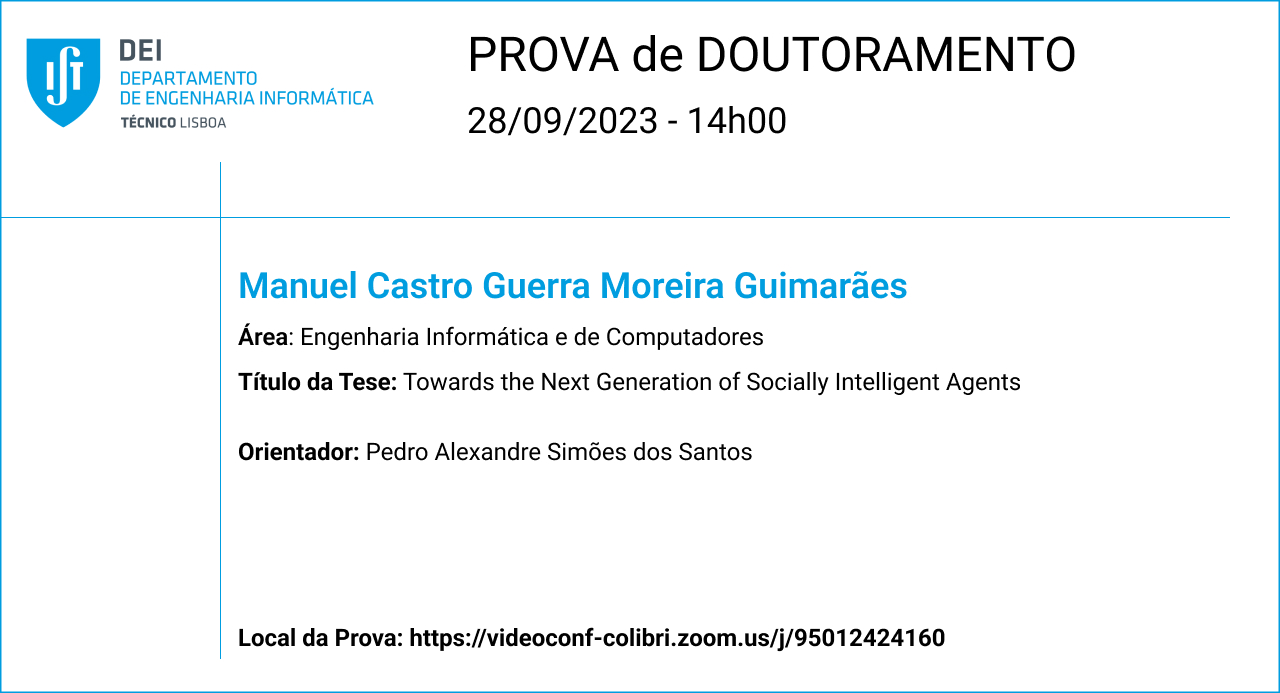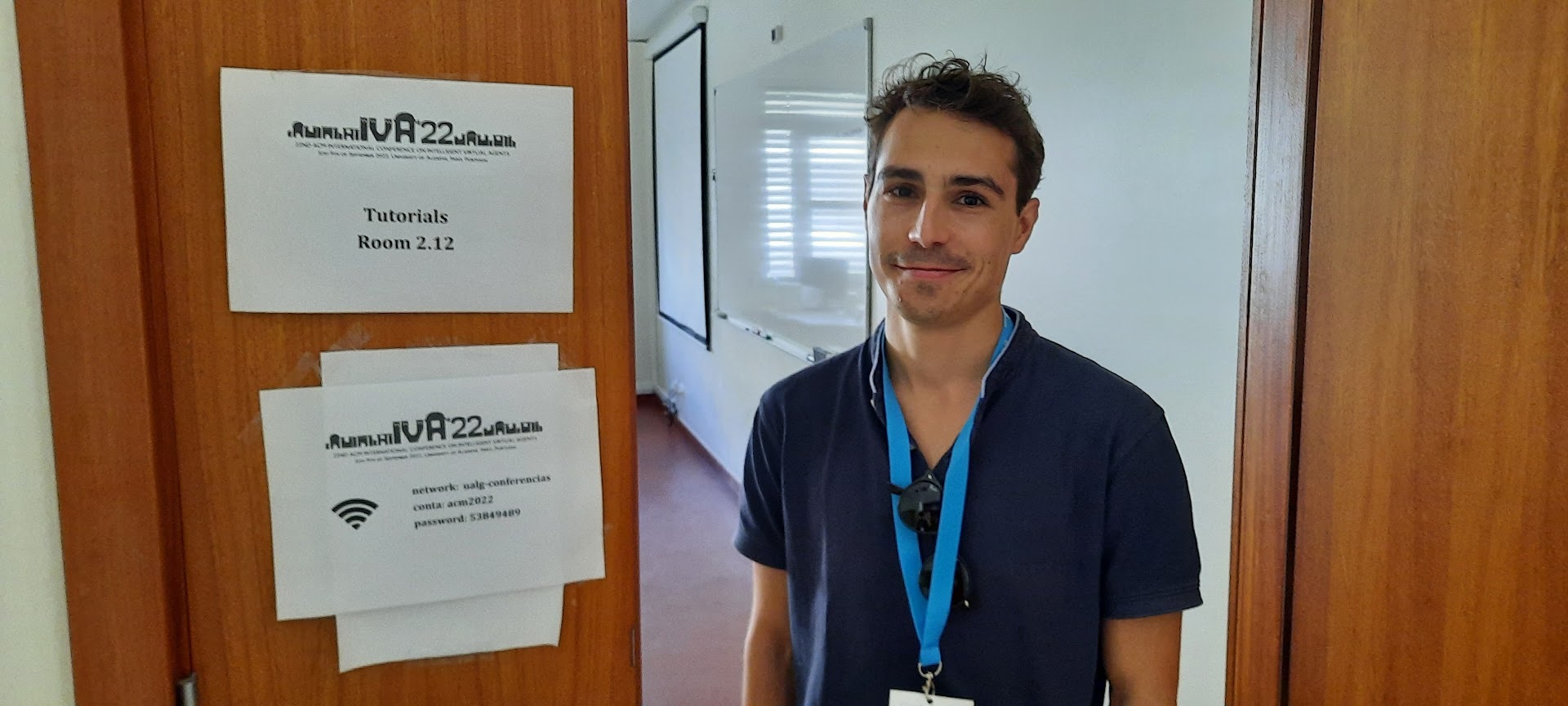Prova de Doutoramento do aluno Manuel Castro Guerra Moreira Guimarães

Área: Engenharia Informática e de Computadores
Título da Tese: Towards the Next Generation of Socially Intelligent Agents
Local da Prova: https://videoconf-colibri.zoom.us/j/95012424160
Data: 28/09/2023
Hora: 14h00
Abstract: Theory-grounded agent-modelling tools support the creation of Socially Intelligent Agents (SIAs) capable of engaging in social interactions with participants in various roles and environments. However, their deployment demands a laborious authoring task as it is necessary to manually define behaviour rules and create content.
A new paradigm has been brought forth by the proliferation of ML techniques in multiple fields which could be the key towards easing the authoring burden. The generation of social behaviour, however, is a broad and ill-defined problem, thus, harder to learn. Additionally, their need for large amounts of data makes them particularly prone to echoing the biases in the data, inherently complex and inapt to handle new situations.
We propose the creation and validation of a middle-ground approach that leverages data-driven techniques over a theoretical foundation, harnessing the strong points of both systems and mitigating their weaknesses.
To achieve our goals, we performed an innovative analysis of the authoring experience in modern agent modelling tools. One key finding is that, while SIA concepts are generally understandable, emotional-based concepts are as easily comprehended and used by the authors.
The work led to the development of the Authoring Assisted FAtiMA-Toolkit. In this improved agent modelling framework, authors can leverage data-driven methods to produce SIA artefacts such as characters with beliefs, decision rules, and emotional reactions. Additionally, an authoring assistant was developed to promote the authors’ explainability and control over the scenario.
A user study was conducted to evaluate the effects of the framework on the authoring experience. Results found that, on average, authors using Authoring-Assisted FAtiMA-Toolkit created more SIA-related content in a shorter amount of time. Our findings suggest that the Authoring Assisted FAtiMA-Toolkit supports the creation of affective, social agents by easing the authoring burden without compromising the framework’s understandability and authorial control.

